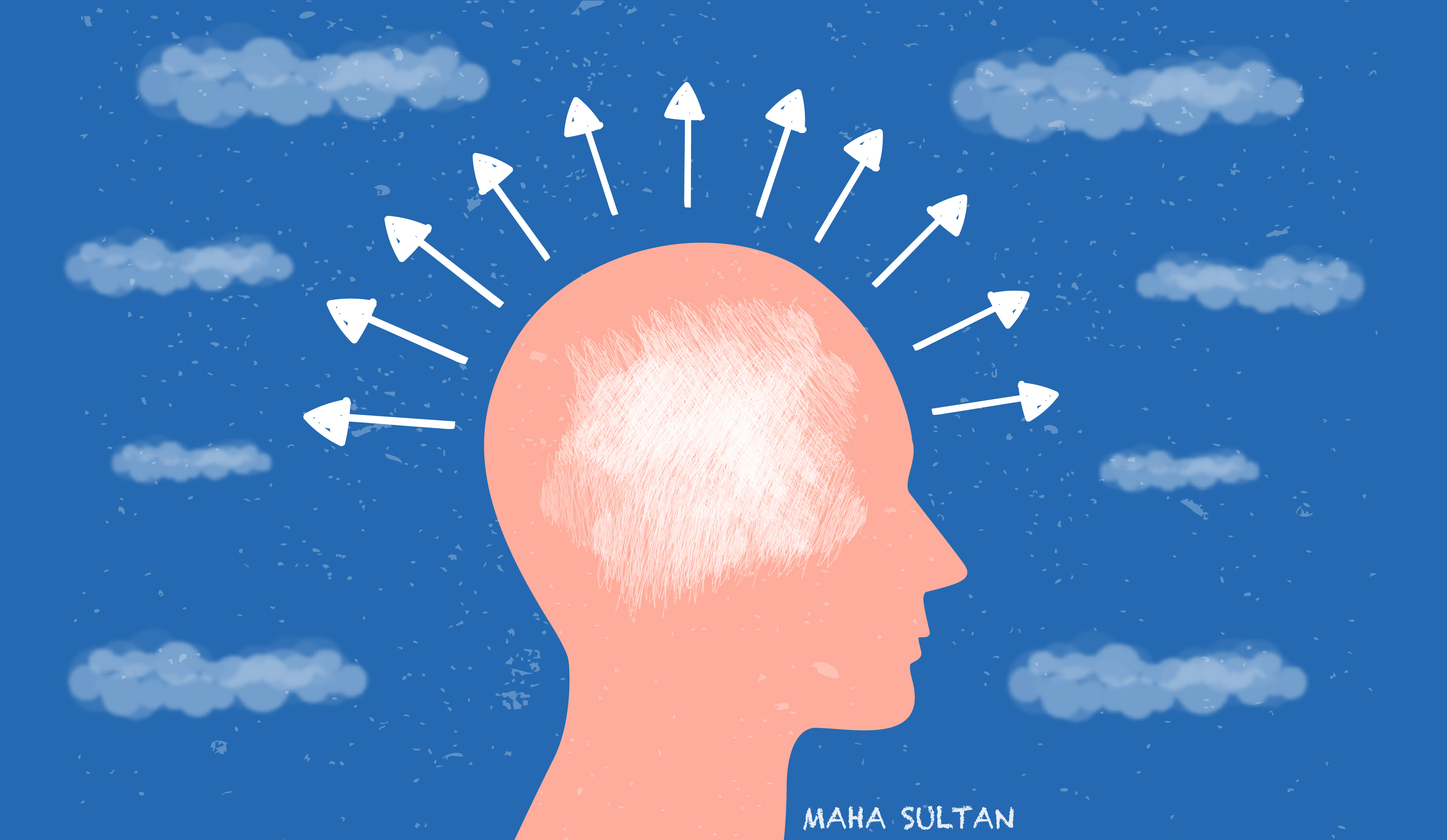Last September, we decided that second year would be the year we would get “involved”, as many students do. Granted, this was a very vague goal and we weren’t entirely sure what this so-called “involvement” would entail, but in the end we made it work. Oddly enough, the first opportunity that came our way was an unexpected Facebook invitation to “Meditation Class #1” sent from our friend Logan. Spontaneously, we decided to give it a go. Meditation tied in well with our second-year quest towards self-betterment, and the description of the event sang the word most sacred to a struggling student’s ears: free. That evening, we arrived in Room 50 of the Atrium, not knowing what to expect. Somehow, we left as committee members of DU Meditation Society.
The class started with a short introduction followed by a Body Scan. What is a Body Scan, you ask? It basically involves focusing your attention on each of the different parts of your body in turn, promoting mindfulness and relaxation. The instructors gave us the opportunity to share our personal experience and feelings about the process. What popped up again and again was how easy it was to become distracted. We were reminded that this is a natural experience for beginners, and received tips on to how to tackle the problem. We then moved on to the Mindfulness of Breathing practice, which uses breath as the object of your concentration. Though the process was brand new to us, we instantly felt some of its benefits. There was a sure atmosphere of serenity in Room 50 by the end of the session.
“We are often in a constant mode of doing, preoccupied by the stresses and pressures of our academic and social lives”
Studies have consistently shown the positive effects that meditation can have on individuals. Many of these benefits are of particular relevance to students. With the hectic nature of student life, we are often in a constant mode of doing, preoccupied by the stresses and pressures of our academic and social lives. Meditation is all about taking time to relax and enter into a place where you can simply be. It allows us to take a breather from our preoccupation with the non-stop pace of modern life. It has been shown time and time again that meditation can have a powerful positive impact on concentration, stress, and anxiety, pertinent topics within the context of student life.
It is often difficult to maintain focus in university, whether it be listening in a lecture, remaining engaged in a tutorial or staying off Facebook in the library. You need only look around a lecture theatre to notice how difficult we as students find it to concentrate. There are usually more people browsing ASOS than there are taking notes. Research has indicated that regular meditation can improve an individual’s ability to maintain and direct their attention. In a 2010 study, students who meditated performed ten times better than a control group in a test of sustained attention. Research from as early as the 1970s showed that Buddhist monks who take part in regular intensive meditation perform better in concentration tasks than those who do not. Gaining the ability to focus the mind can help you immeasurably in increasing productivity and concentration.
“Taking just a short amount of time out from the worries and responsibilities of daily life can make a significant difference to your stress levels”
In university, it is also true that stress from varying academic and social pressures can have a significant impact on students. Thirty percent of students say that stress has negatively affected their academic performance. Meditation is all about relaxation and creating a sense of wellbeing, and so it comes as no surprise that it can help combat stress. Taking just a short amount of time out from the worries and responsibilities of daily life can make a significant difference to your stress levels. Research has shown that people who engage in a mere twenty-five minutes of meditation each day endure less stress than those who do not. This short amount of time can make a noticeable difference to both your wellbeing and your ability to deal with stressful situations that come your way. Meditation has also been linked to improved sleeping patterns, and is an effective mechanism in dealing with anxiety.
The DU Meditation society offer weekly meditation gatherings every Tuesday at 7PM in Room 50 of the Atrium and are hosting a Mindfulness Morning on Tuesday March 21 in the Global Room. Acknowledging the proven benefits of meditation, our society is dedicated to the spread of mindfulness and compassion among students. Our classes led by the Dublin Buddhist Centre have finished up, and so we plan to start up student-centred, student-led meditation sessions. In doing this, we aim to emphasise the communal aspect of these get-togethers, allowing people to share and discuss their individual experience with mindfulness. Best of all, these classes will be free; so what’s there to lose? It could provide you with the spiritual discovery you never knew you needed!







